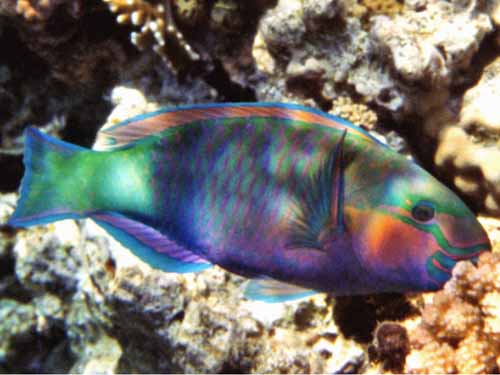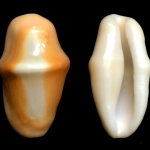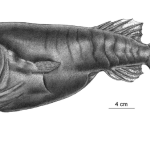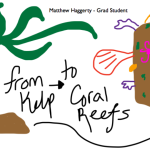 You are fish. The guy above is your enemy, a Gnathiid isopod, a vicious parasitic relative of a roly-poly. Your defense? You cough up enough loogies to coat yourself in a protective layer of joyous mucus.
You are fish. The guy above is your enemy, a Gnathiid isopod, a vicious parasitic relative of a roly-poly. Your defense? You cough up enough loogies to coat yourself in a protective layer of joyous mucus.
Of course you are not a fish and fish don’t need to cough 1,000’s of thick loogies. If you were a parrotfish all you would need is to secrete a thin layer of mucus to cover yourself every evening. You sleep and your mucus blanket protects you. What do you care? Sure you may not be attracting the opposite sex all covered in your own slime but that is little price to pay for not getting eaten alive. Moreover, that mucus blanket costs so little. A mere 2.5% of your daily caloric intake. Of course you could not produce that mucus and risk a 95% chance of having flesh picked at by your friend above. I personally pick the nice juicy mucus coat and cut my chances down to 10% of being picked off in my sleep by parasites.
Grutter, A., Rumney, J., Sinclair-Taylor, T., Waldie, P., & Franklin, C. (2010). Fish mucous cocoons: the ‘mosquito nets’ of the sea Biology Letters, 7 (2), 292-294 DOI: 10.1098/rsbl.2010.0916








Another theory I read was about the mucous containing or capturing the scent of the sleeping fish helping to keep it safe from predators. I had my doubts; what do you think?
From the introduction of the paper
The gnathiid idea is pretty solid. Its akin to a mosquito net. Gnathiids are ubiquitous on reefs and the cumulative effect of all that blood draining can be serious. Of course, cleaner wrasse can help, but that’s a whole’nother story; cleaners aren’t nearly as altruistic as people think they are. I feel a blog post coming on…